CHL Flagship Staff
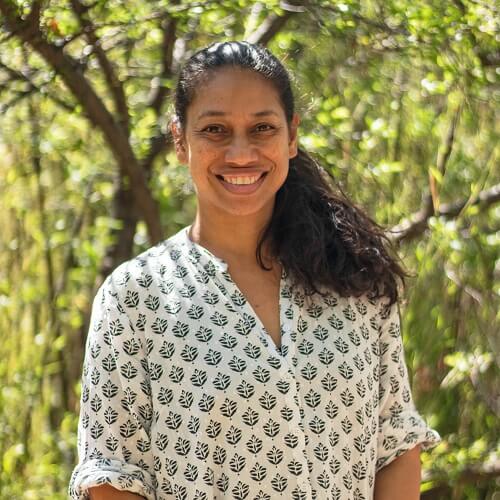
Katerina Teaiwa
Katerina Teaiwa
Katerina Teaiwa is an Associate Professor in Pacific Studies at the School of Culture History & Language. She is of Banaban, I-Kiribati and African American descent, born and raised in Fij
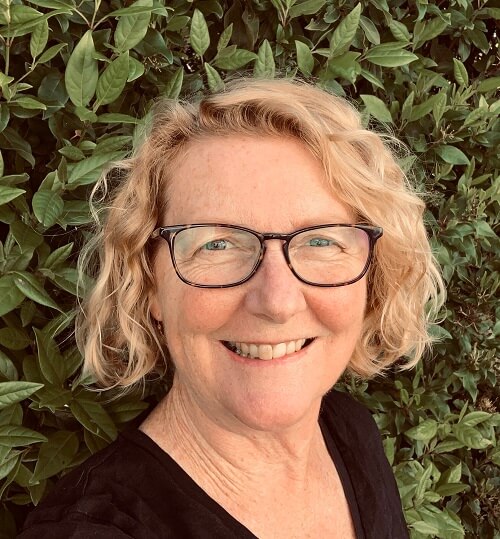
Janelle Stevenson
Janelle Stevenson
Janelle Stevenson is an Associate Professor in the School of Culture History & Language at the Australian National University. She is a geographer and botanist by training and investigates landscape over deep time across Asia, the Pacific and Australia. She lives and works on beautiful Ngunnawal and Ngambri lands.
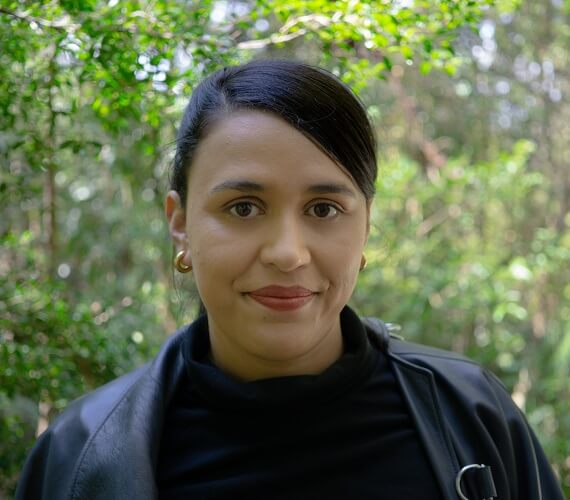
Talei Luscia Mangioni
Talei Luscia Mangioni
Talei Luscia Mangioni is a Fijian and Italian PhD student undertaking written and visual research on creative and critical histories of the Nuclear Free and Independent Pacific movement.
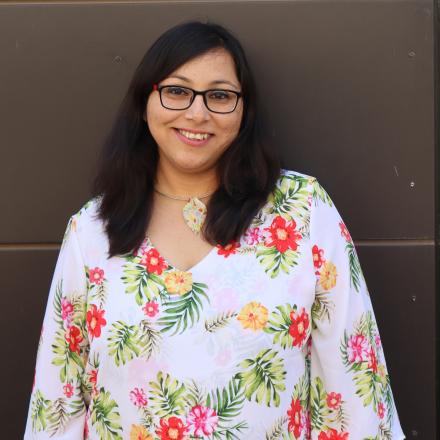
Gouri Banerji
Gouri Banerji
Gouri is the Communications and Outreach Coordinator at the ANU School of Culture, History & Language (CHL).
Film Participants
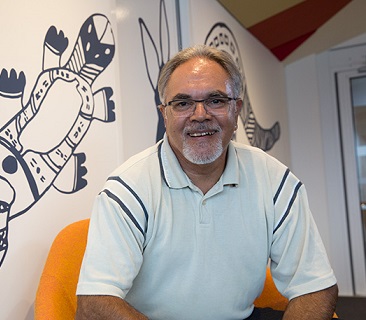
Uncle Wally Bell
Uncle Wally Bell
Uncle Wally Bell is a Ngunnawal Traditional Custodian. As Chair and Cultural Heritage Officer of Buru Ngunnawal Aboriginal Corporation, Uncle Wally Bell provides consultation and participation in the management and protection of Ngunnawal Aboriginal cultural heritage. In addition, Uncle Wally Bell cares for Country by maintaining Aboriginal sites of significance and engaging in land care, conservation and management on Country.
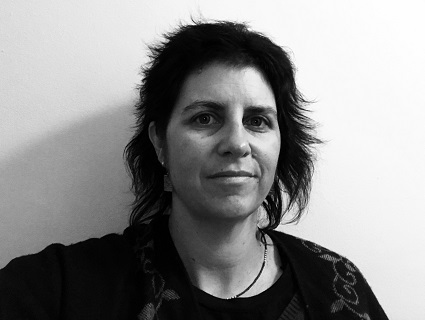
Natalie Harkin
Natalie Harkin
Natalie Harkin is a Narungga woman and activist-poet from South Australia who has worked in the Indigenous higher education sector since 1995. She is currently a Senior Research Fellow at Flinders University with an interest in decolonising state archives, currently engaging archival-poetic methods to research and document Aboriginal women’s domestic service and labour histories in SA. Her words have been installed and projected in exhibitions comprising text-object-video projection, including creative-arts research collaboration with the Unbound Collective. She has published widely, including with literary journals Overland, Westerly, Southerly, The Lifted Brow, Wasafri International Contemporary Writing, TEXT and Cordite. Her poetry manuscripts include Dirty Words with Cordite Books in 2015, and Archival-poetics with Vagabond Press in 2019.
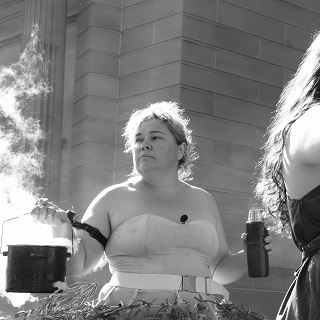
Ali Gumillya Baker
Ali Gumillya Baker
Ali Gumillya Baker is a Mirning woman from the Nullarbor and Far West Coast of South Australia, she lives and works on Kaurna country, Tarndanyangga/ Adelaide. Ali is an artist, academic and filmmaker and has an Honours degree in Visual Arts, a Masters in Screen Studies and a PhD in Australian Studies. She is a member of the Unbound Collective and a Senior Lecturer in Creative Arts within the College of Humanities, Arts and Social Sciences at Flinders University.
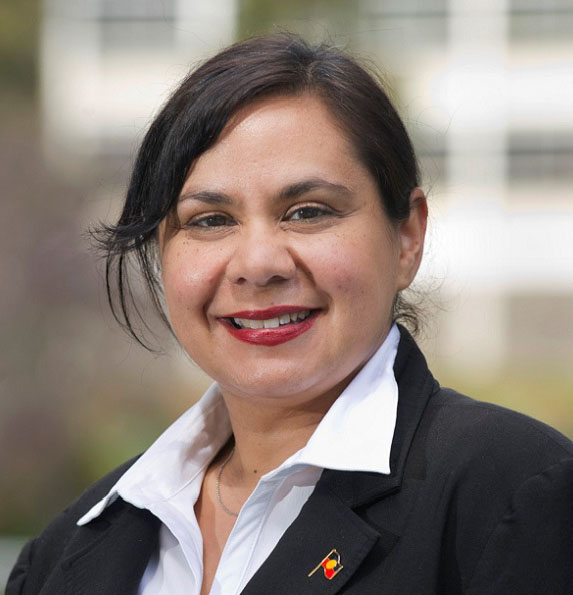
Simone Ulalka Tur
Simone Ulalka Tur
Simone Ulalka Tur is from the Yankunytjatjara community, north-west South Australia and resides in Adelaide. Simone has undertaken leadership roles within higher education. She was the Director of Yunggorendi First Nations for Higher Education & Research, from 2011–2015 and Associate Dean, Tjilbruke Teaching & Learning within the Office of Indigenous Strategy & Engagement, 2015–2017 at Flinders University. She is now located in the College of Humanities, Arts and Social Sciences in Creative Arts. A particular focus of her leadership role involves integrating Indigenous Australian perspectives within university topics and promoting a greater understanding between Indigenous Australian peoples and the broader Australian community. She currently lectures to Indigenous and non-Indigenous students, representing her educational philosophy of privileging Indigenous cultures, languages and ideologies as a deconstruction and decolonising educational process.

Futuru Tsai
Futuru Tsai
Futuru Tsai is an Associate Professor in the Department of Public and Cultural Affairs, Institute of Austronesian Studies, National Taitung University. He is also the Director of the Taiwan International Ethnographic Film Festival. He has a PhD in Anthropology from the National Tsing Hua University. His research interests are: Visual Anthropology, Historical Anthropology, Ritual and Performance, ‘Amis People, Taiwan Indigenous War Experiences during the Pacific War (PNG), Indigenous Social Movements, and Maritime Culture among ‘Amis People. He has two books that focus on Anthropology and the Indigenous war experiences in PNG from 1943 to 1945. He has also published several award-winning documentaries. Currently, he is making a documentary on underwater spearfishing men among ‘Amis Indigenous people in eastern Taiwan titled Breathing Between.
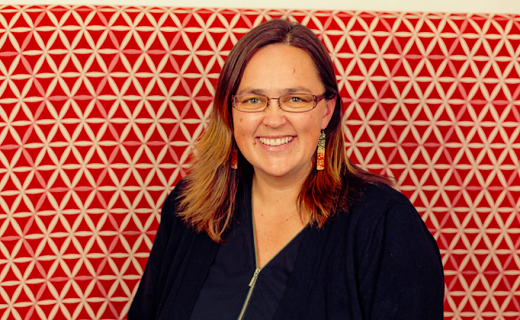
Alice Te Punga Somerville
Alice Te Punga Somerville
Alice Te Punga Somerville (Te Ātiawa, Taranaki) writes and teaches at the intersections of Indigenous, Pacific, literary and cultural studies. She is Associate Professor in the Faculty of Māori and Indigenous Studies at the University of Waikato. Her first book was Once Were Pacific: Maori connections to Oceania (Minnesota 2012) and her current project ‘Writing the new world: Indigenous texts 1900- 1975’ explores published writing by Indigenous people from Aotearoa, Australia, Fiji and Hawai’i. She also writes the occasional poem.
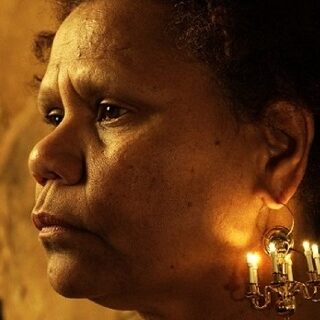
Faye Rosas Blanch
Faye Rosas Blanch
Faye Rosas Blanch is of Yidiniji/Mbarbaram descent from the Atherton Tablelands, North Queensland. Faye is Senior Lecturer in the College of Humanities, Arts and Social Sciences at Flinders University. She is currently engaged in her PhD which delves into the Intimacies of colonialism, sovereignty and intimate connection to country. Faye teaches the core topic in Education-- Teaching Indigenous Australian Students and Introduction to Aboriginal Studies. Faye holds a Teaching degree and Master by Research in Education, and her intellectual scholarship is informed by Indigenous education, youth, and families. Faye engages with a decolonising praxis and situates the human as important in the teaching environment, which can be dangerous at times. Faye has held the position of Teaching Coordinator, and Academic Advisor in Yunggorendi First Nations Centre. She has contributed to developing curriculum and the topic Indigenous Research Methodologies (Postgraduate). Faye is also a member of the Unbound Collective.
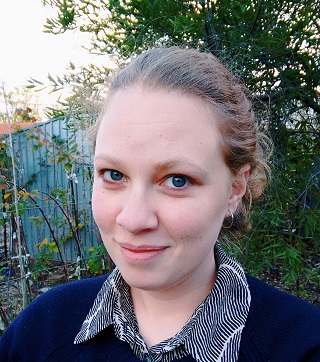
Maeve Powell
Maeve Powell
Maeve Powell is a Ngiyampaa woman who grew up in Sydney and Canberra with links to western New South Wales. She graduated with a Bachelor of Arts/Economics from ANU in 2014. In 2017, she completed a Masters of Philosophy in Indigenous Studies at the Arctic University of Norway in Tromsø. In 2016, she undertook the Indigenous Studies Summer Program at Columbia University in New York. She sees her academic work as situated within trans- Indigenous scholarship at the intersection of Indigenous studies and critical geography. She is interested in spatial decolonisation, urban Indigenous belonging, digital story mapping and Indigenous education. Maeve is currently a PhD scholar in the College of Asia and the Pacific at the ANU.
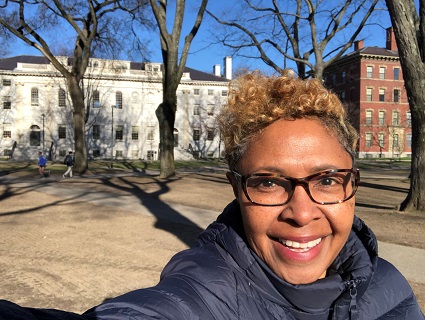
Leah Lui-Chivizhe
Leah Lui-Chivizhe
Leah is a Torres Strait Islander with extensive family links to the Mer, Erub, Badu and Mabuiag islands. She holds a PhD (History) and an MSc (Geography) from The University of Sydney and has worked extensively with Aboriginal and Islander peoples and communities since the mid-1980s. Her research is in Indigenous Australian histories and in recent years she has concentrated on Torres Strait material and cultural histories and performance. She is currently working with a nineteenth century ethnographic and natural history collection, exploring how Islanders can engage with the collection for remembering and performing history.
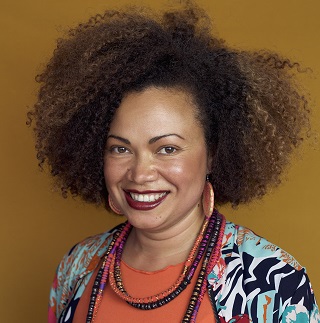
Lisa Hilli
Lisa Hilli
Born in Rabaul, Papua New Guinea, Lisa is a descendent of the Tolai / Gunantuna people. She is a contemporary artist living in Narrm (Melbourne). Through her practice she prioritises indigenous knowledge and matrilineal systems to subvert colonial and Western histories contained within ethnographic and archival material. The representation of the black female body and the politics of hair are ongoing themes that allow her to explore, combine and disrupt the confines of photographic and textile practices. Lisa was a co-founder of the Pacifc Women’s Weaving Circle and the Contemporary Pacifc Arts Festival (2013-2015) held at Footscray Community Arts Centre. She is currently an Experience Developer at Museums Victoria.

Emalani Case
Emalani Case
Originally from Waimea, Hawaiʻi, Emalani Case grew up in a small town immersed in the stories and histories of her place. Coupled with her life-long training in hula, or Hawaiian chant and dance, she thus learned to see her world—each landscape, seascape, and skyscape—as being ‘storied.’ This fuelled her passion for writing and studying literature, which eventually led to her BA and MA degrees in English; to her efforts to learn to speak, write, and translate ʻŌlelo Hawaiʻi (Hawaiian Language); and eventually, to her PhD work in Pacific Studies at Victoria University of Wellington where she continued to study stories, genealogies, and ancestral connections and obligations across Oceania. Emalani now shares her love of stories and histories as a Lecturer in Pacific Studies. As a Hawaiian woman, scholar, activist, blogger, and dancer, she is deeply engaged in issues of Indigenous rights and representation, dietary colonialism and food sovereignty, political independence, and environmental and social justice.

Akil Ahamat
Akil Ahamat
Akil Ahamat is a Sydney-based Sri Lankan Malay arts worker and interdisciplinary artist working in sound, video and installation. His own work is driven by research into the phenomenon of ASMR and the translation of its sonic aesthetics into gallery and performance contexts.
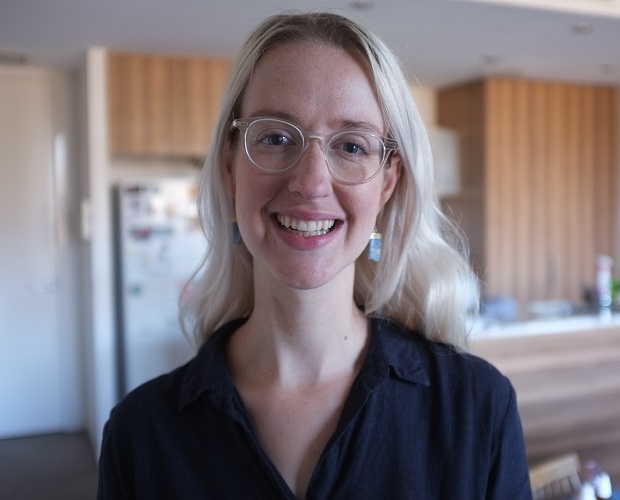
Bianca Hennessy
Bianca Hennessy
Bianca Hennessy is a white settler PhD student in Pacific Studies, writing about the decolonising intellectual genealogy of the academic community.
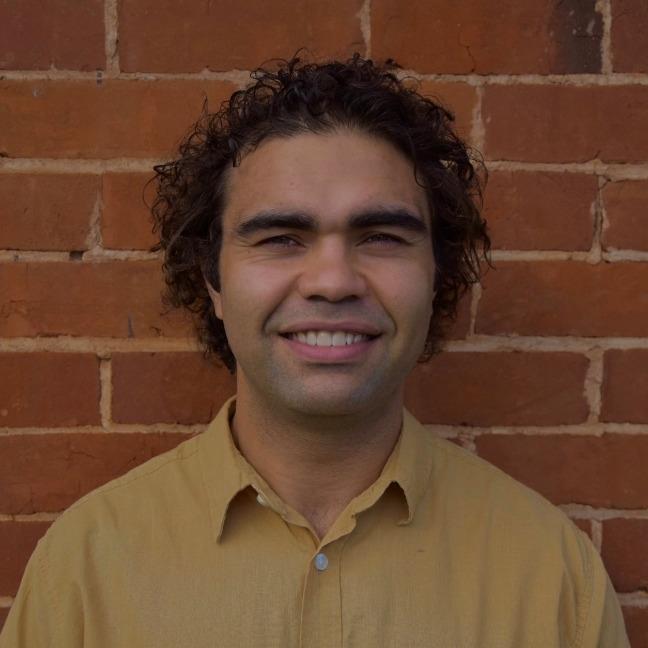
Robert Williams
Robert Williams
I am an archaeologist who belongs to the Walgalu (Ngambri), Ngunnawal and Wiradjuri language nations of NSW and the ACT. Firstly, I acknowledge Aboriginal and Torres Strait Islanders as the first peoples of this land. I also acknowledge the many Pasifika archaeologists and custodians, and academic mentors that I have had the pleasure of working with through my short journey in academia.
I was born and raised in my traditional country of Canberra and have undertaken my entire schooling on country. I completed a master’s at the ANU and then spent a short stint at the University of Sydney before returning last year to my alma mater, the ANU, as an Academic Associate. I have attempted to gain a diversity of experiences throughout my short research career in archaeology, working in the Torres Strait Islands but predominantly in Vanuatu. I am currently finishing my doctoral thesis which is based on the pre-European settlement history of West Futuna, in southern Vanuatu. I also work closely with many Aboriginal custodians of NSW in both contract and research archaeology. I have desire to use my education, for which I am very grateful, to pursue greater engagement and opportunities for Indigenous peoples of this region.
In my spare time I love growing veggies, mowing the lawn and did I mention I’m a Rabbitohs tragic – here’s to an improved and successful 2022 season!
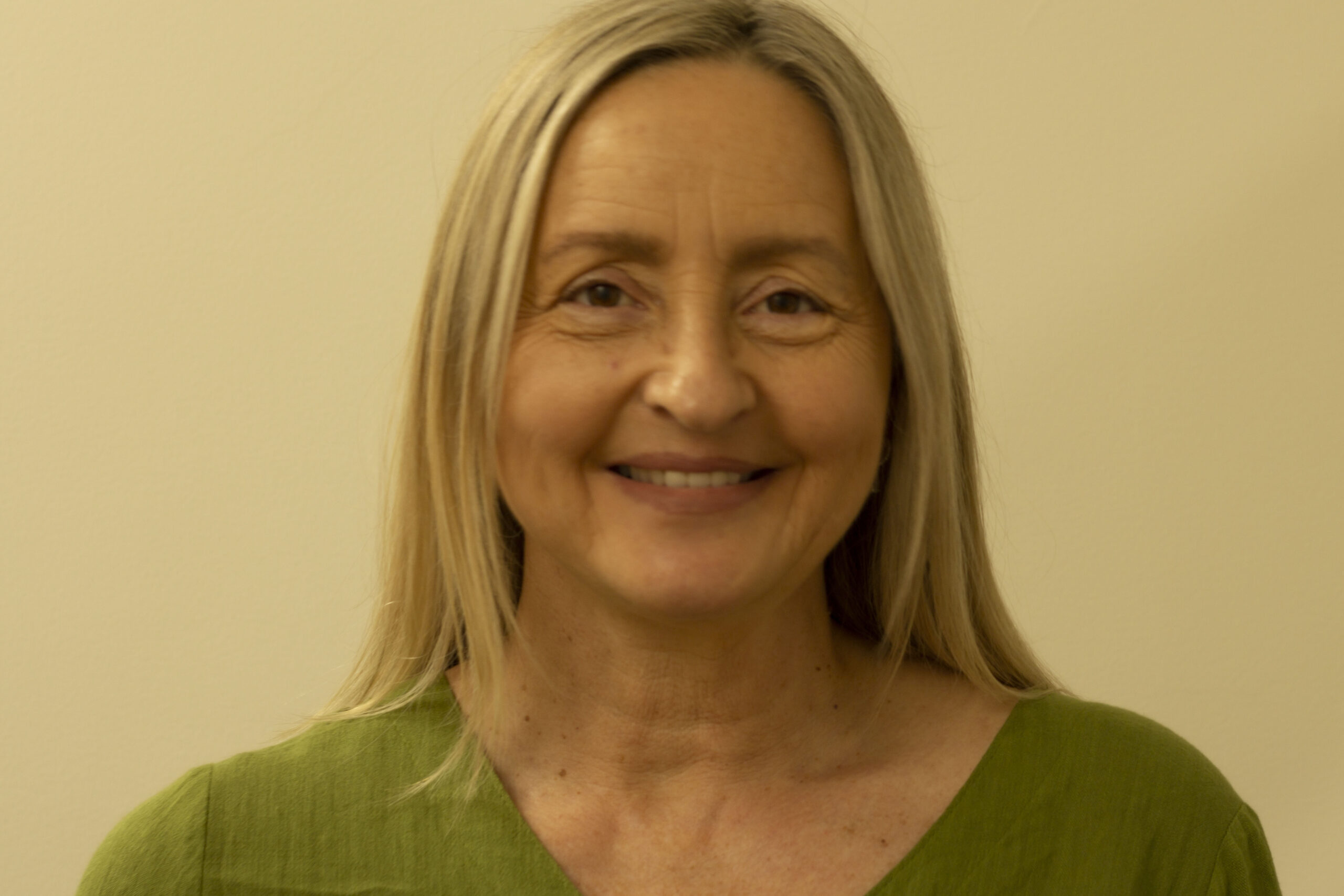
Jen Mason
Jen Mason
I am a descendant of the Gourmjanyuk clan of the Wemba Wamba nation, and the Theddora Mittung people of the Dhudhuroa nation through my great grandparents, who are apical ancestors of these two tribes. The historical decimation of my people and language means my traditional knowledge is fragmented and this is the motivation for my current work as a researcher. In our culture our individual history or yumerraki, (dreaming) would be recorded by identifying significant milestones on possum skins, forming a cloak to be worn through to adulthood. As directed by my Elders it is my cultural obligation to sieve through the available information to attain the necessary knowledge to pass on to our descendants.
I have chosen the digital media practice to present my research findings. In my doctoral research, I examined the cultural engagement between Indigenous and non-Indigenous people, producing a scripted documentary film as the major creative output. Focusing on creative practice framed through Yarning methodology, my current research builds on this decolonised approach, and includes content that connects my people to country, resulting in an immersive digital media output.
At the Queensland University of Technology I tutored in both the Communications and Digital Media disciplines. I have extensive professional experience in Event and Project Management, across a broad range of vocations within the communications sphere, both in Australia and overseas.
I enjoy many creative activities and streamline these to include content related to work and I also enjoy Karate to keep fit and cooking to relax.

Raymond (Ray) Tobler
Raymond (Ray) Tobler
I am a population geneticist and evolutionary biologist, born and largely raised in NZ, of mixed Indigenous Australian and European heritage. I am now lucky to be collaborating with Indigenous groups from across Australia, New Guinea, and Indonesia to learn more about their deep history stretching back as far as genetics can peer (which is several 1,000s of generations, so quite a long way!).
A big part of my motivation to use remarkable power of modern genomics to unravel human history has been my own families’ ongoing search to learn about our Indigenous Australian heritage. Because every person’s genome is a record of their ancestry, it can be informative about heritage when other records are insufficient, which is sadly the case for many families adversely impacted by past Colonial Australian policies.
After completing my PhD (in fruit fly evolution) in 2016, I returned to Australia to be part of a unique study exploring the deep history of Indigenous Australia using DNA from historical hair samples, which were collected during anthropological expeditions starting nearly 100 years ago and reconsented by the original donors or their direct descendants. I am also involved in similar collaborative projects in New Guinea and Indonesia, with the view of gaining a deep understanding of the historical links within and between these regions.
When I’m not doing genetics, I enjoy a bit of woodworking and hiking and, as a recent arrival to ANU, am looking forward to exploring the natural beauty of Ngunnawal and Ngambri Country.
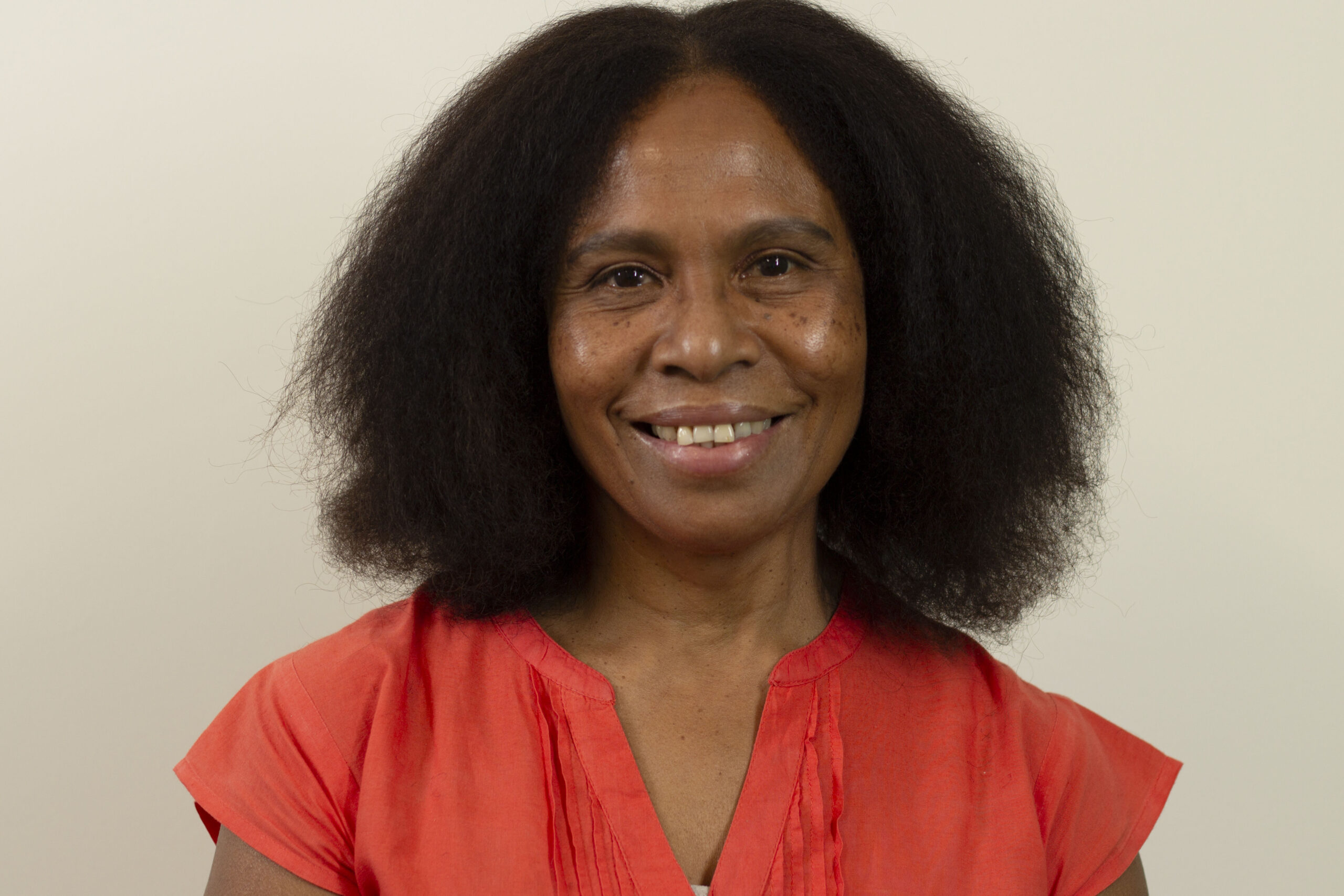
Jenny Homerang
Jenny Homerang
I am a Nalik-speaking woman from the Moxokamade babanga (hornbill) clan of Madina village, northern New Ireland, Papua New Guinea. My membership of the Moxokamade hornbill clan is through my mother’s line. Out of sub-clan and clan obligations and responsibilities and abina (place) care and well-being, my Moxokamade, babanga (hornbill) clan initiated me as a Wangpaang, (message-bearer) and go between Meimaai (Orator) and clan and sub-clan members. With this position, I was encouraged and given permission by a core group of decision-makers of seven clans in Madina to work with and alongside members of our community to research and articulate in writing the meanings we give to land in our three-phased mortuary ceremonies (a Punguva, a Nges Gom and Malagan) from a sek abina (people of the place) perspective. This PhD research is done through the Department of Asia and Pacific History and is a component of a bigger community project run by our Madina community-based NGO, Recreating the Village.
Some of the important work that has benefited our community from the current research has been the re-establishment of the Madina Aipopong Language and Culture School, recording of community clan-land genealogies and stories, a work-in-progress Nalik dictionary and teaching Nalik online to Madina children living in Australia, United Arab Emirates and the United States.
I joined the Department of Asian and Pacific Languages in 2018 as a Pacific Language Developer tasked to develop the online Tok Pisin language minor courses. In 2019 I took up the position of Lecturer and Convenor of the Tok Pisin Language program. In my spare time as an artist I enjoy creating 3-dimensional sand paintings. I absolutely love watching birds, listening to their unique sounds and connecting my hands back to the land in my backyard.
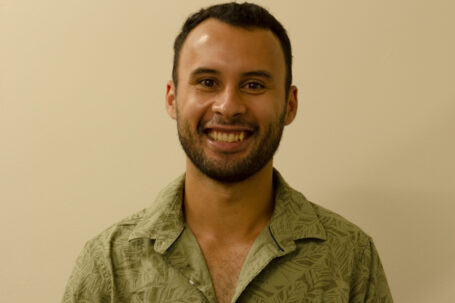
Charles James Tekarawa Radclyffe
Charles James Tekarawa Radclyffe
I am a Solomon Islander of I-Kiribati and British descent and am delighted to have recently joined CHL as an Indigenous Postdoctoral Fellow. I specialise in archaeological and anthropological research in Oceania and consider myself truly blessed to live and work in such a culturally diverse and beautiful part of the world! Over the last decade, I have participated in and directed cultural research programs primarily in Solomon Islands as well as Papua New Guinea, New Zealand, Australia and the United Kingdom. Highlights from my fieldwork in my home country of Solomon Islands include surveying beautiful coastlines and pristine lagoons, eating delicious local fruits and traditional foods, and, most importantly, building relationships with local landowners and learning of their rich kastom (‘traditional’) knowledge and histories.
My current areas of research include the history of pottery-making in Solomon Islands, pre-European settlement and the development of exchange networks in the country, and navigating academic spaces as an early career Pasifika researcher. As one of Solomon Islands’ first archaeologists to hold a PhD, I recognise the privilege of my education as well as the duty and responsibility that comes with it to improve archaeological research and cultural heritage management practices in my home nation.
In my spare time, I love a game of basketball and volleyball, and rarely say no to some karaoke! Tagio tumas and ko rabwa! (“thank you very much!”).
